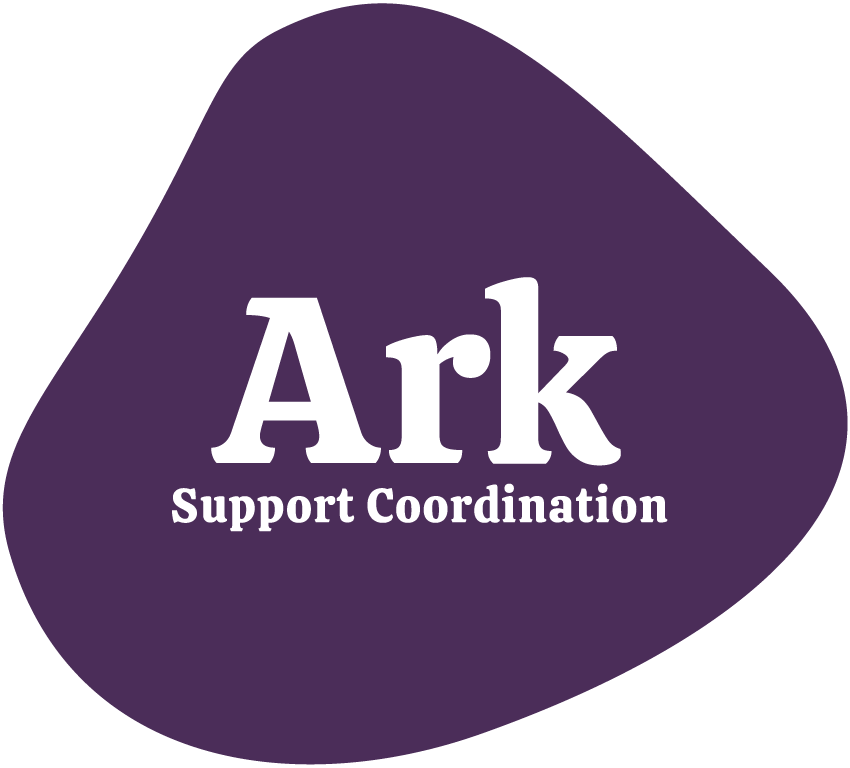NDIS Capacity Building - Social Work
Home to an experienced team of social workers, Ark Support Coordination can assist you through your NDIS Improved Daily Living funding. Having been built on a solid foundation of social work values and ethics, our organisation utilises our sound understanding of social work theories, such as empowerment theory and systems theory into practice across our suite of services.
Through NDIS Improved Daily Living funding, Ark supports clients to achieve their goals through aiming to gain long-term independence and taking all the necessary steps to get there. With social work at the forefront of our minds, we understand that systemic and environmental barriers can prevent people with disabilities from reaching their potential and fully participating in the community.
At Ark, our team works to resolve these challenges and increase independence through solution-focused therapeutic interventions with a strengths-based, person-centred approach.
We understand the nuances of the human experience and use this to build capacity through social work.
Our social workers are particularly skilled in understanding the intersection between the lived experience of disability and other biopsychosocial factors that create structural disadvantage and poorer socio-economic outcomes.
In doing so, we’ve leaned into using NDIS capacity building to support psychosocial disability, aiming to strengthen our clients’ ability to manage the wider impacts of the challenges that they face. This not only uses social work as a base used to build capacity, but also empowers clients to build a unique set of skills, confidence and support networks to ensure solutions and independence can be achieved in the long-term.
Social work interventions can assist minority and marginalised groups such as Aboriginal and Torres Strait Islander people, culturally and linguistically diverse people including migrant and refugee groups, and LGBTIQA+ people who also live with a disability to break down these structural barriers. We are continually educating ourselves to follow best practice in understanding and mitigating challenges for marginalised groups.
Delivering NDIS capacity building through a uniquely value-based profession.
Ark is experienced and ready to assist NDIS participants in building capacity on their journey to independence. Get in touch to discuss your options and we’ll work to understand how we can assist.
Our Australian Association of Social Workers (AASW) members are experienced in delivering the following services:
Crisis intervention
Cognitive behavioural therapy
Ecological social work
Individualised assessment, program design and planning
Family-focused therapeutic intervention
Parenting capacity building for people living with intellectual and psychosocial disabilities
FAQs
Whether you’d like to enhance your understanding about social work and the theory that guides it, or you want to explore how we may be able to help with claiming services under your NDIS capacity building funding, we’ve answered some of the most frequently asked questions below.
-
Uniquely positioned as a value-based profession, social work promotes social change and development, social cohesion, and the empowerment and liberation of people. The profession and academic discipline is formed by theoretical understandings which explore people in relation to their surroundings, how social issues not only impact a person's life but shape how they see and interact with the world.
Social justice is a core value of social work practice remaining a central focus of social work's purpose since its inception. It is described as a social virtue because it acknowledges social institutions and structures as creating injustice and inequity relating to the distribution of wealth, resources and positions of power. Social workers aim to create change guided by theories that support the values of social justice, empathy and respect for all human beings.
-
Ecological systems theory analyses the interactions between a person and their environment and the various social systems at play. This theory emphasises how social systems contribute to individual and community well-being, and believes behaviour is influenced by factors like family, friends, social settings, economic standing and home life, all working together as a system.
Empowerment theory recognises individuals as experts in their needs and situations. It also identifies an unequal division of power between people and their environment, which affects stigmatised or marginalised populations. Empowerment theory seeks to reclaim power and decision-making by building participation, collaboration and engagement with the people whose lives are being influenced to create change.
Social work is always adapting to new streams of thought, considering various ideas, beliefs, understandings and prioritising lived experience. Social work de-privileges the medical-based model of practice which neglects to effectively include social, cultural, political and economic impacts on people's wellbeing.
-
Social Work is a capacity building support that can be claimed from the ‘Improved Daily Living’ budget of your NDIS plan.
The respective line item is: Assessment Recommendation Therapy or Training - Social Worker 15_621_0128_1_3. In order to claim social work (assuming it is included in your NDIS plan), you can complete the manual claim form, or fill it out digitally via the NDIS portal or mobile app.
-
Generally speaking, NDIS capacity building funding can be used to support people living with a psychosocial disability through social work initiatives that aim to enhance skills, encourage and improve independence, and facilitate
At Ark, we are person-centred, so more in-depth NDIS supports for those living with a psychosocial disability can be discussed. Feel free to contact us online or call (08) 6373 7500.
-
Support coordination and specialist support coordination are both considered to be forms of capacity building supports under the NDIS. These supports can help NDIS participants through the complexities of the NDIS by guiding them through their plan and helping them to understand what is able to be covered.
Many of our Specialist Support Coordinators are also social workers, however the two roles do have some distinct differences.


